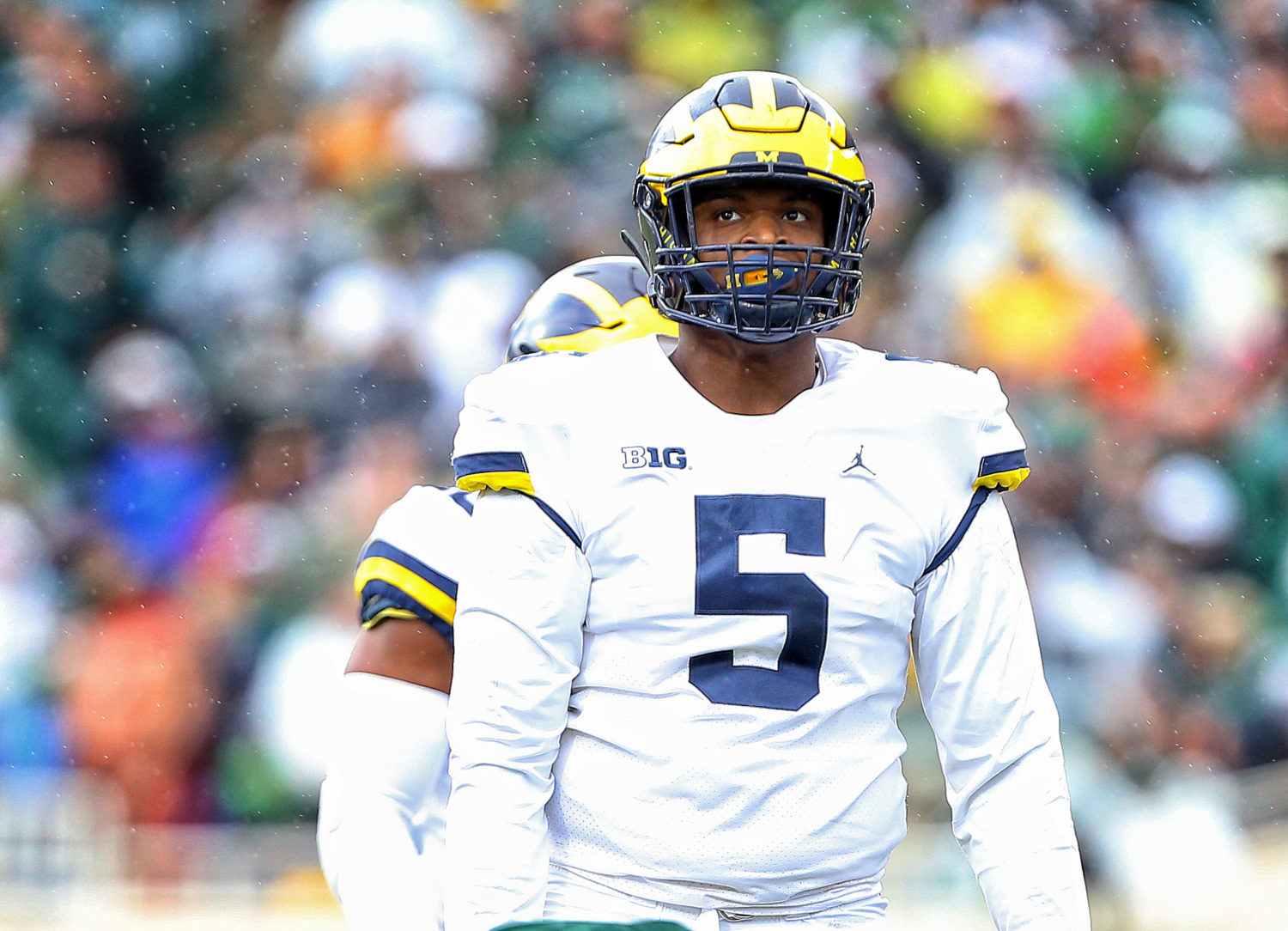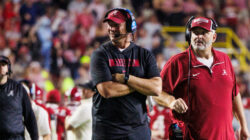
Bless the NCAA’s heart. 8 months after transfer, Aubrey Solomon is finally eligible to play for Tennessee
By Dave Hooker
Published:
Waiting on the NCAA to allow or deny an immediate eligibility waiver is like waiting on a Christmas present that doesn’t show up until spring break. That request must have been on back order.
At some point, even the most invested fans lose respect in the NCAA and who could blame them? Did anyone actually think that Aubrey Solomon would be deemed eligible just 4 days before UT’s season opener against Georgia State on Saturday? I didn’t.
That’s not to say I doubted that Solomon would be eligible. I just had no earthly idea either way. For all I knew, the NCAA could have shown up in a moving truck, packed up Solomon’s stuff and sent him back to Michigan, where he transferred from following last season.
Let’s just all be honest: The NCAA has made a mockery of the whole “immediate” eligibility process when it comes to transfers. Everyone was allowed to transfer, then the process slowly slowed to a halt. Is the process better than before? Yeah, a little, but it’s far from acceptable.
Remember the way the NCAA used to handle transfers? The school got to decide where a player could transfer with clearance. That was far from brilliant. If a player decided to go to a school in which he wasn’t cleared, he couldn’t be placed on scholarship. In other words, the NCAA once had a steadfast policy that amateur athletes would face financial penalties for pursuing their dream of being a student-athlete at another school. Brilliant.
It’s easy to say that the NCAA made the correct decision with Solomon, who will eventually be a starter on UT’s defensive line and, perhaps, even Saturday. That’s letting the NCAA off a bit too easy.
Whatever the reasoning for the delay for the final Solomon decision, it was ridiculous. He transferred in late December. Either someone at UT didn’t fill out the proper paperwork or the NCAA was just plain slow. I’m guessing the latter.
This is nothing new for UT athletic director Phillip Fulmer. Patiently, he would wait for the entire summer and weeks into preseason camp before he would speak his mind on academic eligibility. There was no Twitter, but the word would spread fast when Fulmer decided to openly criticize college football’s governing body. One of the most successful coaches in the nation was pretty perturbed that a key player wasn’t eligible. In those cases, the eligibility issues revolved around high school transcripts or ACT scores. Those delays at least made some sense. High schools don’t have the same checks and balances as college institutions or the NCAA. But a transfer issue?
Did Michigan just not pick up the phone when asked about Solomon? Did Wolverines coach Jim Harbaugh somehow finagle a way to to slow the process? Harbaugh has been accused of such meddling before.
I don’t know Harbaugh and I have no reason to think he would slow Solomon’s eligibility. I do know the NCAA. I do know that Jeremy Pruitt doesn’t have the same voice as a higher profile coach. While Fulmer surely worked behind the scenes to get Solomon eligible, Pruitt had to be the good soldier, keep quiet and keep Solomon away from the media. That was the only option for a second-year head coach.
However, that option did nothing but undermine Solomon’s chances to have a successful first season at UT. Do you think UT’s coaches felt comfortable playing him with the first team considering they had no idea if he would be there on opening day? Do you think he felt like a part of the team when he had to constantly deal with the questions about his eligibility.
How is this still an issue? With the hundreds of millions of dollars at stake, how can the NCAA not make a prompt decision? Let me explain.
The NCAA believes it is doing a favor to allow athletes to transfer and be eligible immediately. From the NCAA’s perspective, things were great when there was no groundswell of support to pay athletes and no social media to share that message. Now, the NCAA is in full damage control — and they can’t even do that correctly.
A player should know what his options are when he decides to transfer.
He shouldn’t have to wait for months.
That goes for a player like Solomon, who will certainly have an impact for the Vols this season. It also goes for any player that feels like they should have the freedom to change his path. Freedom doesn’t sound like the most difficult concept — until the NCAA gets involved.
Dave Hooker started covering Tennessee in 1998. He hosts an SEC radio show out of Chattanooga and covers the SEC for Saturday Down South.







